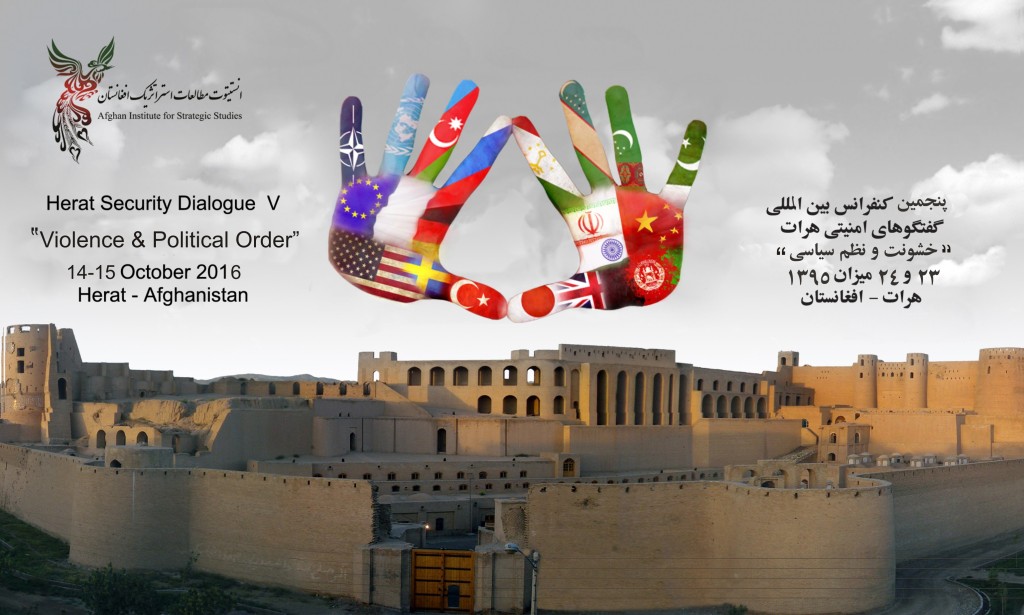Herat Security Dialogue-V
5th Herat Security Dialogue (HSD-V)
“Violence & Political Order”
14-15 October 2016-Herat, Afghanistan
The early decades of the third millennium continue to be haunted by the images of the medieval era and the dark pages of European history. The promise of “the end of history” has been replaced by the horror of “the return of history”. Violence in all its manifestations is becoming the “order” of a growing number of nations and regions, including Muslim-majorities and the West’s dual with its challengers. Concepts and institutions, which are traditionally responsible for taming violence and ensuring political order are being challenged by competing forces, both from within and without.
Are we witnessing a fundamentally different type(s) of violence or they are just the recurrent ones? Are violence that has devastated Muslim communities in the Middle East have religious and sectarian foundation or they are rooted in “modern politics”? To what extent the growing rise of intolerant discourse in “post-modern” West resemble its pre WW-II era? What are the implication of growing competitive tension between the US and China and US/NATO and Russia for global security and order? What role(s), if any, are there for regional and international organizations and political-security architectures in an increasingly fragmented but interdependent world? Who are the less-recognized actors, networks and tools in generating violence and/or political order? Are there any “counter-violence” norms that can shape legitimate & effective political order? What is the state of “violence” and “political order”, in the regions that Afghanistan is co-located? What are the prospects of Afghanistan’s ability to contain its multiple violent challenges and secure a legitimate, effective and sustainable political order?
The above questions are the main questions and issues that the fifth Herat-Security Dialogue (HSD-V) will attempt to discuss by bringing together diverse perspectives from Afghanistan, the region and the wider world. There will be six working panels, in addition to the opening and concluding sessions.

